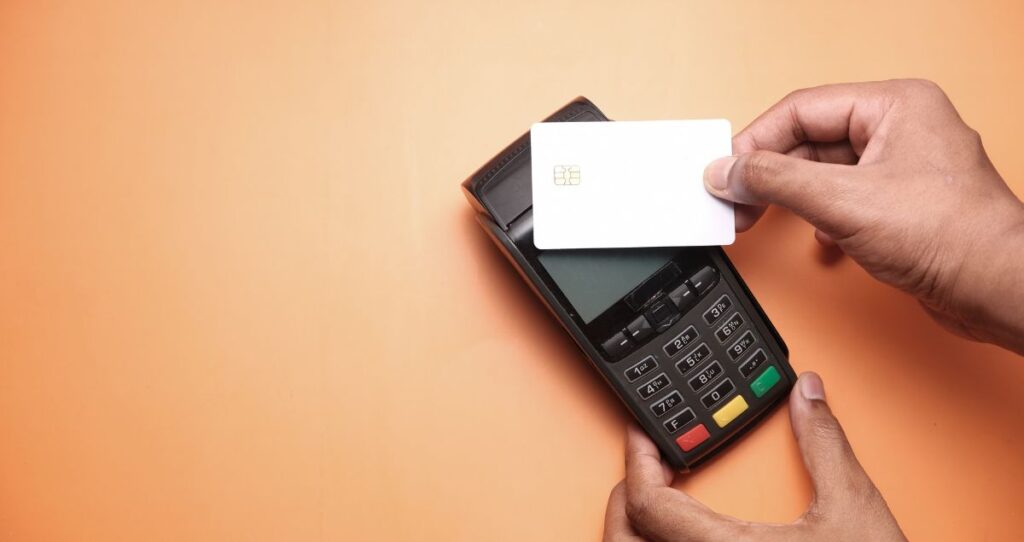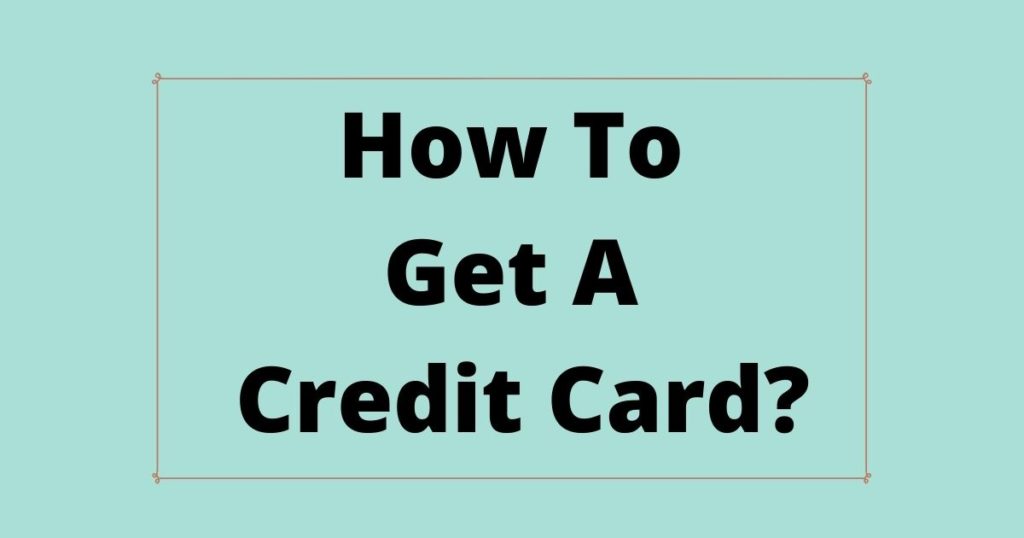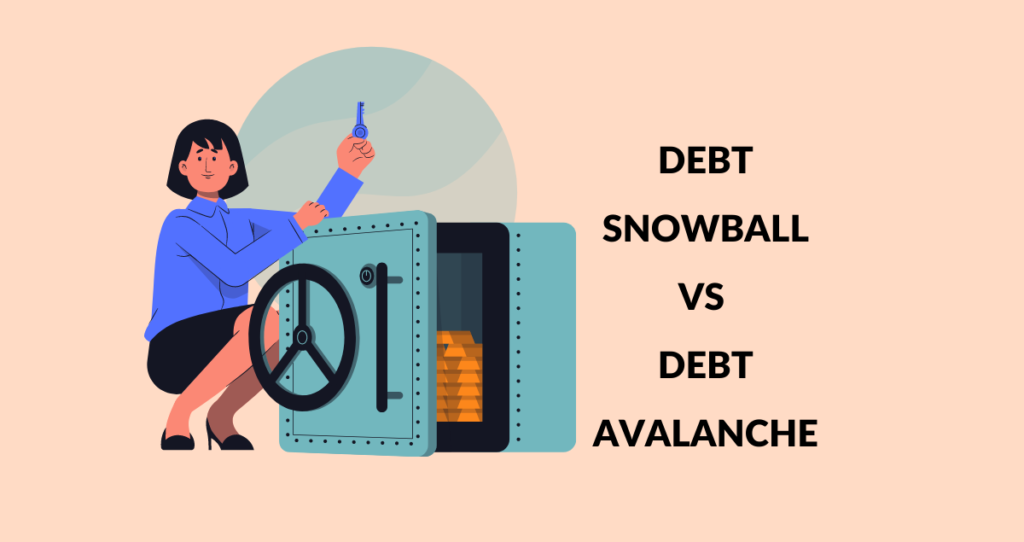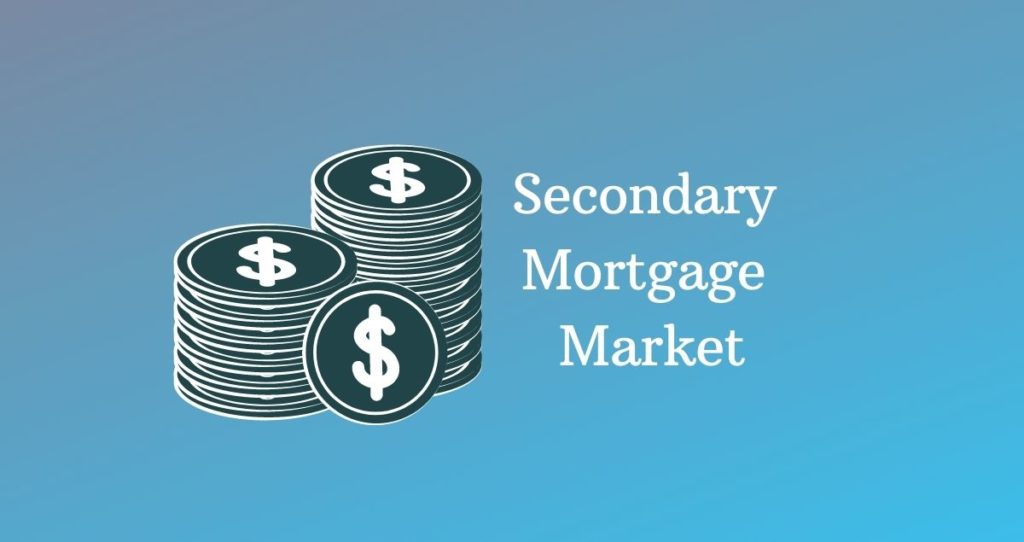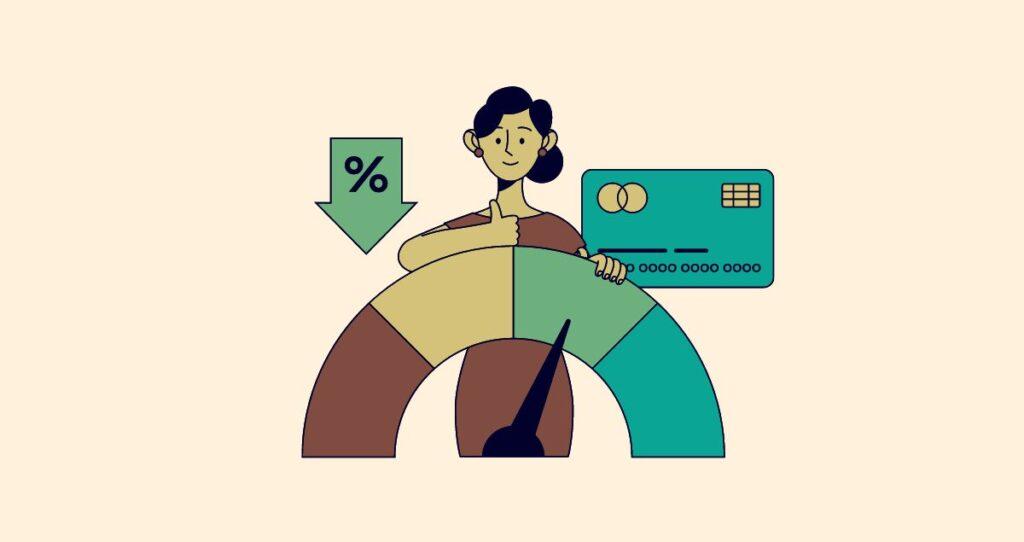Whether you are applying for your first credit card or the 10th card, it is important that you follow the right strategy. Due to the vast number of credit card issuers and different types of credit cards, it can be difficult to get the right credit card. Credit card issuers have specific key points they look for in every application. Missing these important elements will lead to a denial of your credit card application. In addition, you might end up hurting your credit due to hard inquiries on your credit reports. Learn how to apply for a credit card the right way and get approved every time you submit an application.
It is easy to qualify for a credit card account and the benefits are endless. Not only that you can use your credit card to build a credit history, but also you can get discounts on some of the purchases through different features, benefits, and programs that come with credit cards.
Although it is easy to get a credit card; many people end up with the wrong credit cards or cards they don’t need. Others apply for credit cards they don’t qualify for which results in the denial of their applications and hurts their credit scores. In order to get approved for a credit card, you need to apply for the right credit card. Furthermore, your credit card application should include all information the card issuer is looking for.
If you are trying to open a credit card account, this article will be your complete guide.
What is a credit card?
If you are familiar with a debit card, you will not have a hard time understanding what a credit card is. Unlike debit cards where you must deposit money into your bank account to use the card, you don’t need cash to use your credit card. A credit card is a physical card you get from a bank and other financial institutions that come with a limited credit you can spend on it. The limit on each credit card is called a credit limit.
When you apply for a new credit card account, the lender evaluates your creditworthiness and decides to approve or deny your application. Once approved, you will receive a credit card in your mail that has a credit limit on it. The credit limit is the maximum credit line the card issuer extended to you. As you use your credit card, the available credit will go lower. The percentage of the money you spend compared to the total credit limit is your credit utilization. Once the total limit on the card is spent, you must pay off some of your balances before you can use your card again.
Credit cards are a form of revolving credit accounts. This means that as you use your credit card and pay off the limit, your account is renewed automatically. This allows you to continuously use your credit card and pay off your balances. After using your credit card for a while, the card issuer can automatically increase your credit limit. You can also request a credit limit increase by submitting an online form or by calling your card issuer.
You might also like: Does your credit score go lower when you request a credit limit increase?
Why should you get a credit card?
Whether you are getting your first credit card or your 5th card, there are a lot of positive aspects to having a credit card. The following are some of the benefits you will have from using a credit card.
- Building credit history. If you are new to credit and want to build your credit history, a credit card might be your best shot. With your first credit card, you will most likely qualify for a low credit limit on the card. This will allow you to build your credit without getting into too much debt. The history you build with your credit card will allow you to qualify for other credit accounts such as car loans, mortgages, and personal loans.
- Credit cards come with a lot of features and benefits. One of the benefits of credit cards is that they come with a lot of benefits and features. For example, rewards credit cards allow you to get discounts, points, and miles on qualifying purchases. You can also get a signup bonus which varies from one credit card to another.
- A credit card can supplement your income. There are times when your income alone might not cover all your expenses. In this case, you might rely on credit cards to cover some of your expenses while figuring out how to turn your finances around.
- Credit cards can help you repair your credit and increase your credit score. Since each card comes with its own credit limit, you can quickly lower your credit utilization ratio by getting a new credit card with a higher credit limit. A lower utilization will result in boosting your credit score.
- A credit card can help you pay off other credit card debts. If you have higher balances on your credit cards with higher annual percentage rates (APR), you can get a 0% APR credit card and put all your expenses on this new card. By using this trick, you will stop using higher APR credit cards which will reduce the interest you pay and make it easy to pay off your debts. Another way a credit card can help you pay off your credit card debt is through the balance transfer process.
How do you know if a credit card is right for you?
Using a credit card means that you are borrowing money to spend. So, before you apply for a credit card, you need to make sure that you are ready for the card. The following tips will help you evaluate if you are ready to use a credit card.
- You don’t spend extravagantly. People who spend too much build a lot of credit card debts really quickly. If you spend more than you make, a credit card is probably not a good choice for you.
- You act responsibly when it comes to debt. If you pay your bills on time, avoid excessive borrowing, and respect the terms of your credit accounts, then you are ready for a credit card.
- The card is needed for the right reason. Many people get credit cards because they are not financially responsible. They view credit cards as another source of free money to spend. If you have the same approach toward credit cards, you are not ready to get a credit card. Credit cards are a form of credit and only responsible users should use them.
- You are aware of how credit cards work. Millions of people are currently struggling with credit card debts because they don’t understand how they work. It is important that you learn the basics of credit cards and how they work before getting your credit card. The more you know about credit cards, the lesser mistakes you will make.
- You have some savings. It is very easy to accumulate a lot of credit card debt. Unless you have some savings and an emergency fund, you might find it difficult to stash money away after getting a credit card.
You might also like: How to Raise Your Credit Score in 30 Days?
Be aware of high-interest rates and fees
What makes credit cards risky is the high-interest rates and fees. Even if you have a credit card with competitive rewards, you will still pay fees, charges, and interest rates when applicable. For example, some credit cards come with annual fees. But others don’t. It is utterly important that you learn about these fees and charges before you apply for your first credit card. Failure to do so can lead to long-term financial struggles due to hard-to-pay-off credit card debts.
The fees, interest, and charges you will encounter on your card will include some or all of the following.
- Balance transfer fees
- Cash advance APR
- Annual fees
- Actual APR on the card
- Returned payments fees, etc.
Before getting a credit card
Before you get a new credit card, it is important to recognize that credit cards are a form of a loan. Every expense you put on your credit card must be paid off. The interest rate might also be applied in case you carried balances to the next payment cycle. For example, if you owed your credit card issuer $1,000 and paid $100 and carried $900 to the next month, you will pay interest charges on that $900 you carried over.
Most credit cards also come with compounding interest. With this interest, you pay interest on the principal amount and the interest at the same time. For this reason, you can easily build up a lot of credit card debt very fast.
If you never used a credit card before, you might need to first learn how credit cards work. A good path most people take is to become an authorized user of a credit card account. This option is good for you if you know someone who has a good credit card account and can let you become used to their account. As an authorized user, you will get your own card that is tied to the original account. The benefit of this move is that you will not be responsible for activities on the account. All responsibility for the account will fall to the account owner. To ensure the integrity of the account, you must pay off balances on your card on time and avoid any activities that can hurt the account.
Most card issuers report authorized users’ activities to major credit reporting agencies(Equifax, TransUnion, and Experian). In other words, your activities on the account will appear on your credit reports which will help you build your credit history and increase your credit score. After having the required credit history and getting the knowledge you need, you can then apply for the right credit card.
Related: What is an authorized user on a credit card?
How to apply for a credit card?
Now that you know a little bit about credit cards, it is a time you learn how to get a credit card.
The following are tips you can use to make sure that you choose the right credit card and get approved.
1. Know why you need a credit card
Many people get credit cards for different reasons. Some people apply for credit cards because they want to save money on their airline tickets. Others choose store cards to lower their grocery bills. What about you? Why do you need a credit card? Do you want to build a credit history? Knowing why you need a credit card will help you choose the right credit card.
2. Choose the right credit card
It is important to recognize that having a credit card and having the right credit card are two different things. You need a credit card that helps you solve a particular problem. After knowing why you need a credit card, you will search for a credit card that fulfills that purpose. For example, if you want to save money on gas and grocery, you will need to search for rewards credit cards. Inside this category, you may choose a card with the highest cashback on gas and related expenses.
On the other hand, if you want to save money on your airline tickets, you might still look into rewards credit cards. However, you will focus on mile credit cards which is a subcategory of rewards credit cards. You can use miles to cover qualified travel-related expenses with your airline. Your choices are endless and the more you know about why you need a card the better.
If you are new to credit or have bad credit, consider the following options to increase the odds of getting a credit card.
- Secured credit cards. Secured credit cards are designed for people who are new to credit or those with bad credit history. With a secured credit card, you will need a security deposit which helps determine your credit card limit. The card issuer gets to keep your deposit when you cannot pay off your balances. Secured credit cards can help you build your credit history which is a good foundation for getting regular and better credit cards.
- Student credit cards. Student credit cards are some of the best starter credit cards. If you are in college or a young applicant, you might easily qualify for a student credit card. Student credit cards come with lower credit limits and fewer features and limited benefits. If you never had a credit card before, these types of credit accounts can help you build enough credit history and later apply for better cards.
- Become an unauthorized user. If you cannot qualify for a credit card due to having a thin credit file, become an authorized user of an established account. This trick will allow you to build your credit history faster without opening your own credit account.
- Apply for a credit card that allows co-cosigners. There are times when you might find it difficult to apply for a credit card on your own. For example, if you have bad credit or are too young to qualify, you might need a co-signer. A co-signer will vouch for you and take on some responsibilities on your behalf.
3. Get pre-qualified
Even if you are not getting your first credit card, it is possible that you will not qualify for any credit card. Your eligibility for a credit card will depend on many factors such as your latest credit score, income, DTI ratio, etc. Also, the benefits, features, and rates on the card will be different from one card issuer to another. For this reason, you need to get pre-qualified for the credit card and shop around for better rates. For any credit card you want, there will be many card providers. So, check your eligibility and get pre-qualified by many card issuers and compared rates.
Some of the things to pay attention to should be your APR, membership fees, benefits, and rewards.
4. Fill out a credit card application
Every loan and credit account requires that you complete the loan application. Credit cards also require that you submit an application for review. The fact that you have been pre-approved for the card is a great indication that you will more likely be approved for the card.
The fastest way to complete your credit card application is to do it online. Most card providers let you complete the whole process online. You can also stop by your local bank or credit union and complete the application in person.
5. Submit the application and wait for the decision
After completing the application, submit it and wait for the final decision. While waiting for a decision to be made on your credit card application, it is a good idea to not apply for many other credit cards. This is because every credit card application you submit results in a hard inquiry on your credit reports. Each hard inquiry knocks off a few points from your credit score. The key point here is that if you qualify for a particular credit card, submit your application and wait for the decision. On the other hand, if you do not qualify for the card, do not apply for it.
6. Get your credit card in the mail
After you have been approved for a credit card, your card issuer will make the card and mail it to you. It usually takes between 10 to 14 days to get your new card in the mail. It can also take longer for special designs or short when you pay a fee for fast delivery.
Three things you need to easily qualify for any credit card
a. Have proof of income
As you use your credit cards, you will accumulate balances on the cards. These balances must be paid partially or in full every month. Credit card issuers require that you pay minimum monthly payments when you carry balances on your credit cards. To make these payments, you must have an income.
So, before you send in your credit card application, make sure that you have proof of income. Your income also helps card issuers to determine your credit limit. Depending on the company, you might be required to provide pay stubs or tax returns. Whatever the case, be prepared to provide this information.
b. Lower your debt-to-income ratio (DTI ratio)
Lenders compare your current debt amount and your income to estimate whether you can take on more loans. They do this by calculating your debt-to-income ratio which is your monthly debt payment divided by your gross income. Even if you don’t have credit card debts, you might have a lot of student loans, car loans, and expensive mortgages. In this case, you might find it difficult to qualify for a credit card. A higher ratio shows that you have too much debt already, and therefore, you cannot afford to take on more credit. The higher your DTI ratio gets, the riskier you become.
Experts suggest that you keep your DTI ratio under 28%. The lower your DTI ratio, the better. Most card issuers will still approve your application for a DTI ratio as high as 36%.
c. Increase your credit score
The lending industry relies on risk assessment. Any activities on your credit accounts are reflected by your credit score. So, a good credit score shows that you act responsibly when it comes to debt which increases your approval rate and a chance for a lower interest rate. A bad credit score, on the other hand, shows that you are not a responsible credit user, and therefore, cannot be trusted.
Where to get your first credit card?
There are a ton of credit card providers out there. Almost every business small or lager offers credit cards. Although most businesses extend credit to their prospective customers, the best place to start when looking for a credit card is your current bank or credit union. This is because you have a history with your bank which helps reinforce their trust in you.
You can also look into other established credit card providers such as Discover, CapitalOne, American Express, etc. If you want a credit card tied to a specific business, consider store credit cards. For example, you can apply for a Target credit card because you will be shopping at Target for a long time. It all depends on what you want to do with the card.
What do you need to open your first credit card account?
Credit card issuers need to verify your identity before they approve you for the card and mail it to you. So, you will need to provide your full name, mailing address, and date of birth. You might also need to provide your social security number and a photo ID. Some of this information helps lenders to pull your credit reports and check your credit score.
Since you must have proof of income, the card issuer might require that you provide your pay stubs or tax return documents. Proof of income shows that you can make your monthly payment on your credit cards. In addition, income helps car issuers to determine how much credit limit they can approve you for.
